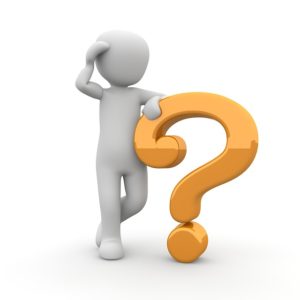
What is the difference between a person who ‘leaks’ information and a ‘whistle blower’? And are the motives distinguishable between the two?
There seems to be confusion over these words in terms of their usage in today’s highly contested political climate. Though both activities have been with us for some time, the terms have become interchangeable when referred to in the news.
Definitions
whistle-blower
a: One who reveals something covert or who informs against another. Exposes violations of law or dangers to public health or safety.
leak(er)
a: To make something known despite efforts at concealment. Confidential information leaked out.
b : To be the source of an information leak.
a: to give out (information) surreptitiously, such as leaking a story to the press.
Differences between a leaker and a whistleblower
Yes it is lawful for a whistle blower or leaker to disclose information confidentially or anonymously to any audience, including the media, if the information is not classified, or its disclosure is not specifically prohibited by statute, such as the Uniform Trade Secrets Act.
If the information is classified, it must go through secure designated channels.
Under those circumstances, there is no difference between a leaker and a whistleblower.
The difference comes when a leaker makes a disclosure that is illegal under federal statute or is disclosing classified information to the media.
Also, the inconsistency comes when a leaker discloses information deemed as political gossip or for political reasons, and is not evidence of government wrongdoing.
Instead of going through secure channels within the federal agency, some leakers are not lawfully disclosing their evidence of misconduct and sending classified information to the media that is not included in the legal definition of the Whistleblower Protection Act of 2012.
According to Timothy Garton Ash, author of “Free Speech: Ten Principles for a Connected World, “a whistleblower is someone who, seeing something that he or she regards as wrong happening inside an organization, passes on that information to others in the hope of exposing the wrongdoing.”
“The means used by leakers …are indistinguishable from those of the anonymous whistleblower, except for the fact that the intentions are often found to be less high-minded.
Whether the leak is from a part of government, a political party or a company, leakers are likely doing it to promote either the organization’s interests or those of a faction within it,” said Ash.
“Although leaking is ubiquitous in early-twenty-first-century politics and business, and many journalists would be lost without it, few impute noble motives to the leakers,” Ash continues. “And sometimes leaking is the hallmark of outright villainy.”
The difference between a leaker and a whistleblower is important, according to Matthew Miller, former director of Public Affairs at the Department of Justice. Miller says leaks of secret information can “endanger American soldiers and intelligence officers.”
Whistleblowers, on the other hand, “expose violations of law, abuse of authority, or a substantial and specific threat to public health or safety.”
When can a whistleblower or leaker be held responsible?
It should be stated that whistleblowers proceed at their own risk’ if they make unprotected disclosures of information without a reasonable belief that they’re evidencing illegality, gross waste, gross mismanagement, abuse of authority, or a specific danger to public health or safety. Under those circumstances, federal agency disclosure restraints or U.S. secrecy rules could be enforced to punish them.
 Do world leaders ever meet in private?
Do world leaders ever meet in private?
‘A president has to be able to have private conversations. You can’t make everything look like a scandal in order to increase your ratings. – Dennis Kucinich
Franklin Roosevelt met with British PM Winston Churchill several times. Both being native English speakers is a plus. And many Israeli leaders (also German and French, English speaking leaders ) have had private meetings with American Presidents.
Often, world leaders will meet in complete privacy, with only a pair of interpreters, another matched pair of officials, or with only their spouses present. Most modern world leaders do not represent a serious physical threat to one another.
Comments are closed.